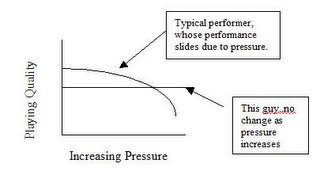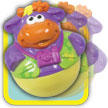Each day, as I teach, all sorts of random thoughts pop into my head. Some are straightforward, some are downright bizarre.
Most comments in this blog will have something to do with my daily life teaching trombone players, playing music, raising my kids, fixing the toilet... you get the idea.
Hopefully you might find it entertaining, maybe helpful, maybe provocative.
If I relate my experiences teaching, of course I'll protect the anonymity of my students.
Where to start? ...
Two Kinds of TeachersMy kids go to a great magnet school, the Center for Inquiry. When parents are asked to evaluate their kids' work, they follow the fomula "Three plusses and a wish." Simple idea: say three positive things and limit your critical comments.
True, these are young kids, but...
What about the ratio of positive/critical comments in teaching college students?
Roughly speaking, there are two kinds of teachers, described something like this:
Teacher A
Man, he/she was tough. I think it was four years before I ever heard a compliment. You didn't dare show up unprepared or they'd rip you a new one. You knew you played it great if, after you finished, they had nothing to say.
Teacher B
I would walk out lessons feeling great. I didn't want to play badly because I didn't want to let him/her down.
Here's the question: which teacher would tend to produce the better students? I lean in the direction of Teacher B although, if a student is yanking my chain, I do need to fire a warning shot across the bow.
What about using "three plusses and a wish" with college students? Is it too soft?
One last thought: comparative praise. One of my favorite techniques is to compare two parts of a performance and point out something like, "I really liked how your phrased it here. But over here, I don't hear the same kind of direction in the line. Where are you going with that phrase?"
Anyway, enough for now..





